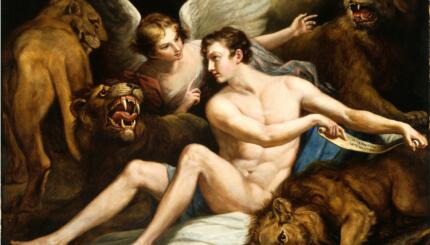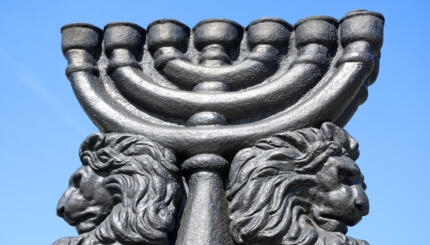Commentary on Parashat Korach, Numbers 16:1-18:32
This Hitler has only one objective, justice for his own people, sovereignty for his people, recognition of the independence of his people, and their right to their resources. If that is Hitler, then let me be a Hitler tenfold.
-Robert MugabeRebels of The Past
In Zimbabwe in 1979, Robert Mugabe was a symbol of national pride, a revolutionary who helped usher the country to independence. Today, his oppressive politics, his criminally irresponsible economic schemes, and his expropriation of thousands of white-owned farms have led to severe damage to his nation’s stability and to his international censure as “the worst kind of racist dictator.”
This week’s Torah portion features a cast of similarly problematic characters: Korach, Dathan and Abiram. Like all good revolutionaries, their uprising has some legitimacy. Korach claims that the whole nation is holy and should therefore have access to power (Numbers 16:3). This is, after all, a time-honored articulation of populism.
God, however, punishes all the rebels. We infer from this that there is, in fact, something insidious, even dangerous, about this uprising. God seems to know something about the inner workings of these revolutionaries. Korach, Dathan and Abiram are too obsessed with their own desire for authority to remember that Moses is, in fact, the person who has been institutionalizing the rule of law and civil society. Israel is in danger of a revolution gone awry, in which the men who lead the charge for freedom become the new source of oppression. Their stated interest in distributing power more broadly appears to be a cover for a darker agenda.
Models of Morality
Similar events unfold all too frequently in our world today. Many communities that have suffered violent oppression for generations undergo a kind of moral meltdown when led to the threshold of self-determination. A lifetime of repression can fill a population with deep-seated hostility and desperation. Models of morality are few and far between on their pathway to autonomy. Violent backlash against both real and perceived threats often spiral out of control.
For the Israelites, 400 years as Pharaoh’s slaves crushed their dignity and made them vulnerable to Korah’s uprising, even on the brink of national redemption. Even the miracle at Mount Sinai was not sufficient to restore a sense of humanity and collective responsibility that would both prevent senseless bloody revolt and foster the creation of a just society.
The tragedy for Zimbabwe is what’s behind Robert Mugabe’s oppression. As it was for the Israelites, the people of Zimbabwe have a Pharaoh. In fact, for many African nations moving toward independence, their Pharaoh is the legacy of European colonialism. Enslavement, the stripping of national resources, and the intentional establishment of boundaries and borders that disrupted age-old relationships among ethnic groups gives rise to modern day Korahs, Dathans, and Abirams. Korah preaches democracy and equal access, Dathan and Abiram demand accountable governance. Yet all three eventually plunge Israel into chaos and bloodshed.
The Danger of Being a Victim
The Torah reminds us time and again, “Do not oppress the stranger, for you were strangers in the Land of Egypt (Exodus 23:9).” Perhaps the urgency here is not simply to empathize with victims of oppression, but to acknowledge that having been victims we are at greater risk of repeating oppressive behaviors. Because we were oppressed, we may be more likely to take up to the tools of the oppressor even as we struggle for freedom. The injunction here is to vigilantly guard against becoming the oppressor.
This difficult lesson is not easily learned, especially when children are starving, when women are being raped, and when violent uprising seems the only alternative to ceaseless suffering.
But the real alternative to this cycle of violence and oppression is the deliberate and intentional building of civil society. Moses exemplifies this when he teaches the people in Deuteronomy that every king of Israel must write his own copy of the king’s scroll and keep it with him at all times. The scroll contains the law of the land, as well as laws which specifically restrict how much money, how many wives, and how much of a military he may amass.(Deuteronomy 17:16) The new king can only act as king when rooted in the laws of civil society.
A Delicate Balance
Parashat Korach teaches that we must exercise both wisdom and serious restraint in how we become involved in the struggles of developing nations. To advocate, support, or engage in violent intervention is to continue the cycle of violence and terror. Worse, propping up client governments that serve only our own interests furthers corruption and instability.
Instead, we must place worldwide focus on the restoration of dignity and equality. We must end oppression. We do this by initiating children not into militias, but into education. We do this by leading emerging governments not into swift vengeance, but into the vocabulary of civil society.
Provided by special arrangement with American Jewish World Service. To learn more, visit www.ajws.org.
With your help, My Jewish Learning can provide endless opportunities for learning, connection and discovery.
Torah
Pronunced: TORE-uh, Origin: Hebrew, the Five Books of Moses.


